The Triumph of Hospitality
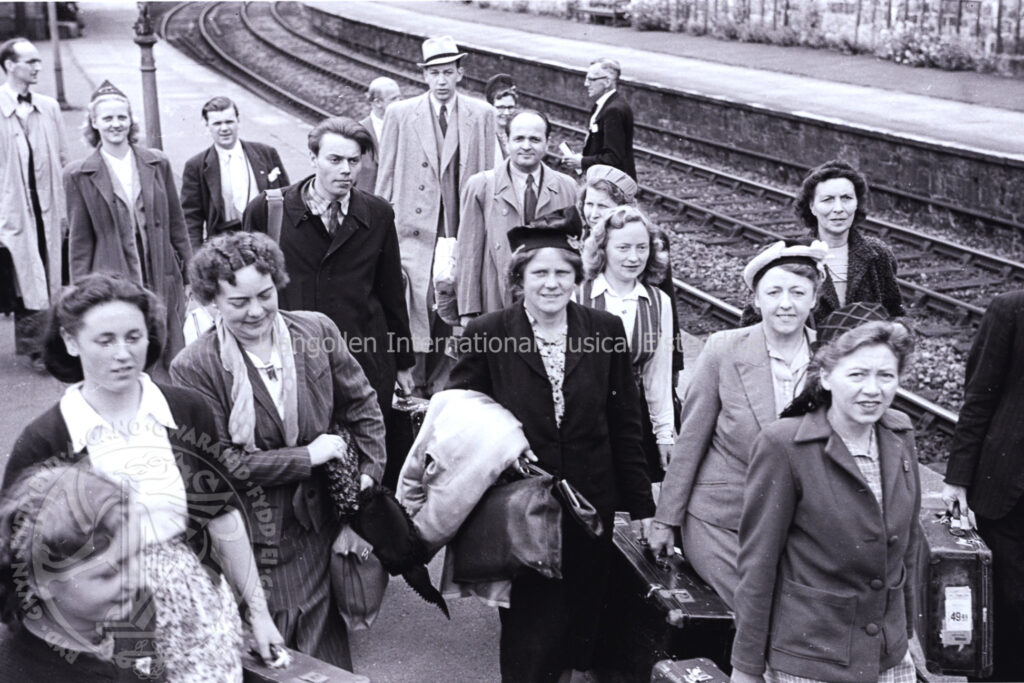
Making the visiting competitors welcome was a high priority for the organisers of the first International Eisteddfod. In 1947 they provided free accommodation and food while in Llangollen, and also paid for travel from the point of entry into the UK. The welcome extended to looking after competitors while they were in Llangollen. A Hospitality Committee was set up very early in the proceedings: it was made up entirely of women.
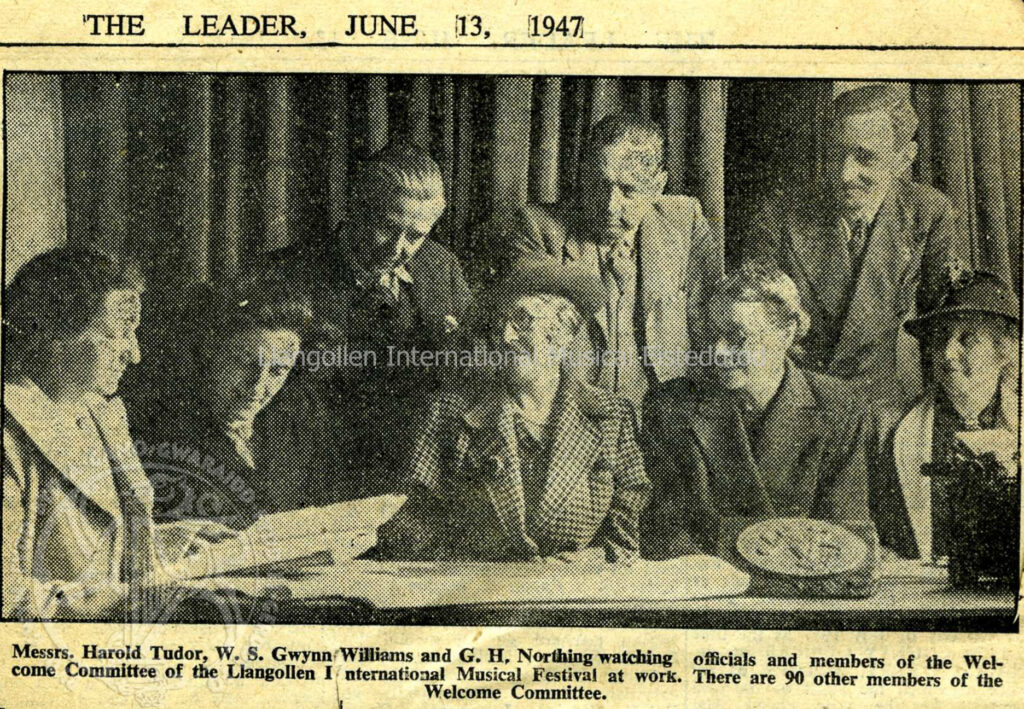
In 1980 the first chair, Mrs Lloyd Jones, recorded her memories of the early years, including dealing with the UK’s rationing bureaucracy.
To start with, competitors were accommodated in the homes of local residents in Llangollen and nearby villages, and also in halls and schoolrooms, where they slept on camp beds. Finding accommodations was a principal task of the committee, which had a representative in each of the participating communities. Householders were offered a small financial recompense, which was frequently refused. In 1947 about a thousand beds were required; by the mid-1950s as the Eisteddfod became more popular the number rose as high as 5000, creating organisational and financial challenges. The search for villages willing to accommodate competitor groups stretched beyond Chester, and out towards Shrewsbury and Bala.
The practice of hospitality generated huge support for the Eisteddfod in the local catchment area. Strong relationships developed between groups and the communities they stayed in, encouraged by repeat visits. The choirs and dance groups frequently gave performances in their villages, and the villagers turned out to support “their” competitors. Communities were disappointed when their expected groups cancelled at the last moment, as sometimes happened.
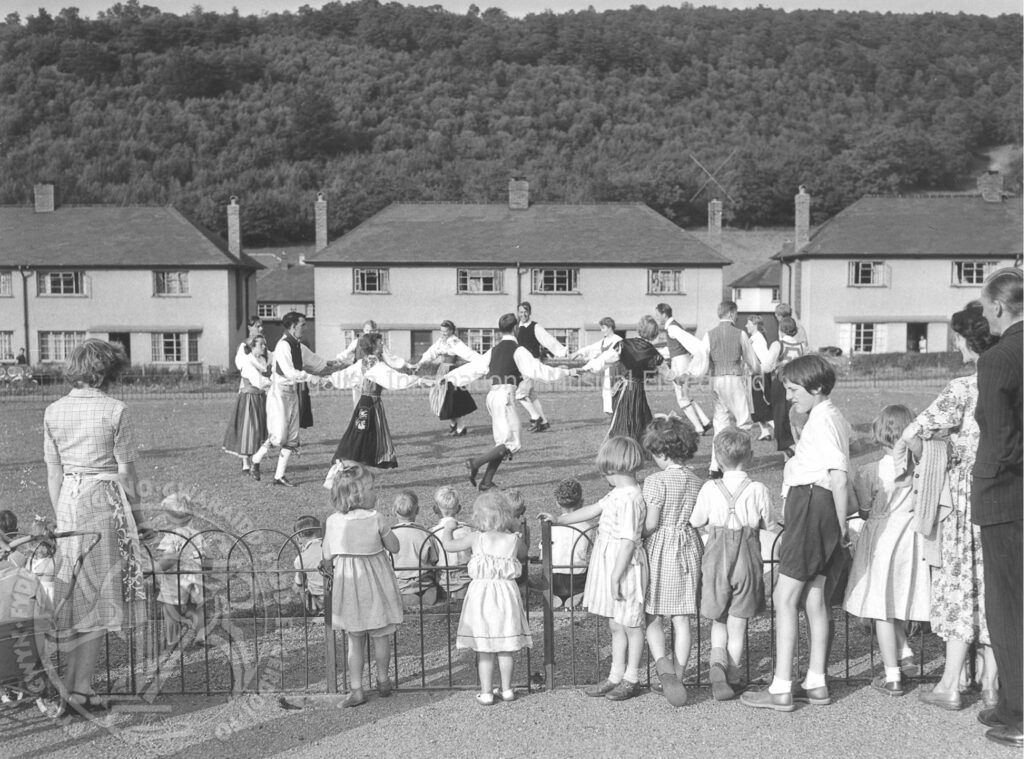
At a personal level individual householder families formed links and friendships with their guests extending by now down several generations. Gifts were exchanged, letters and greetings cards too.
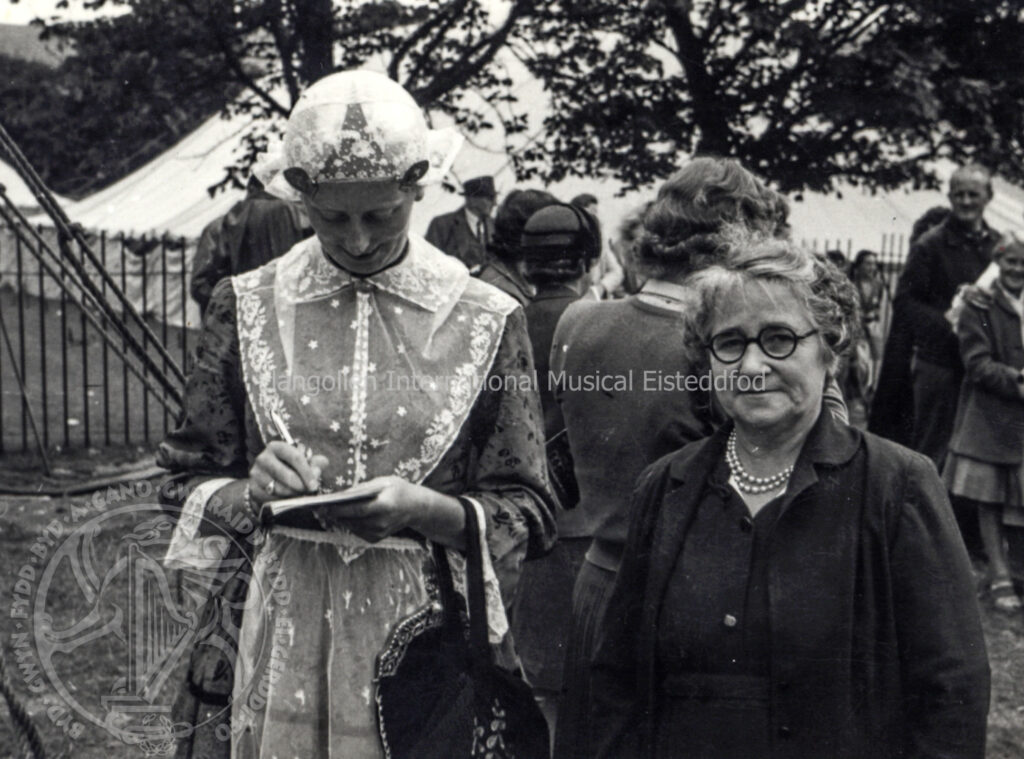
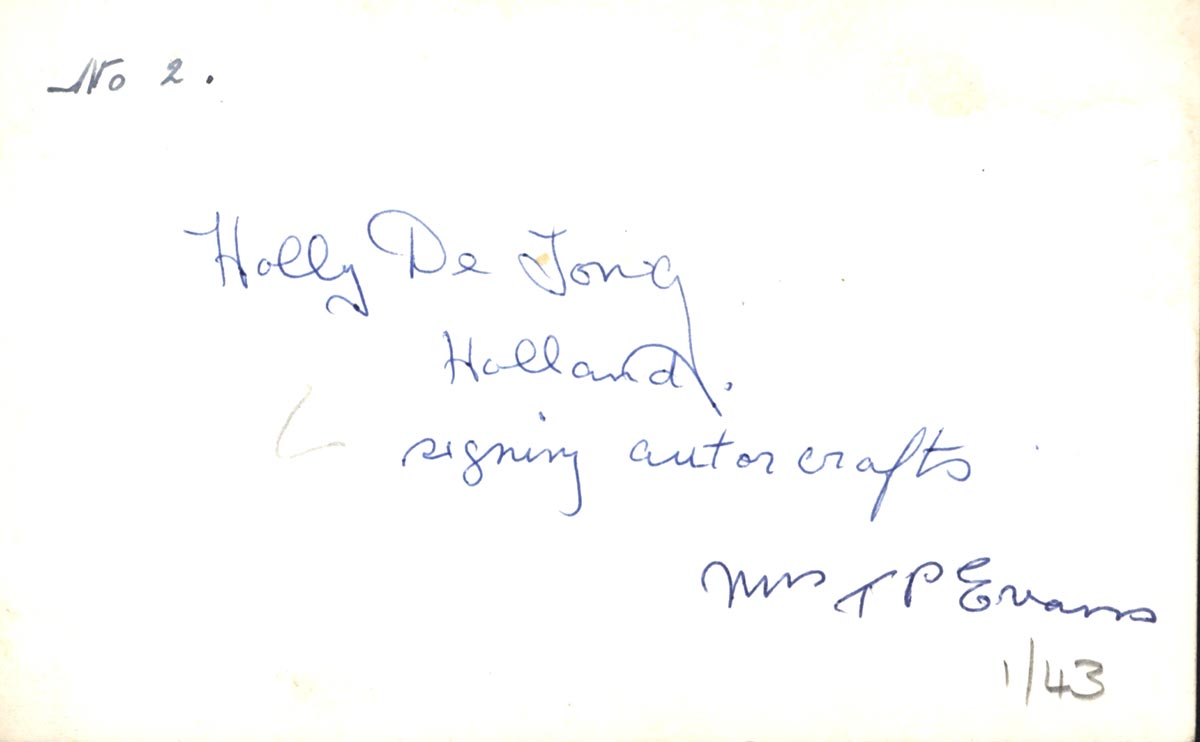
The visitors were taken on day trips:
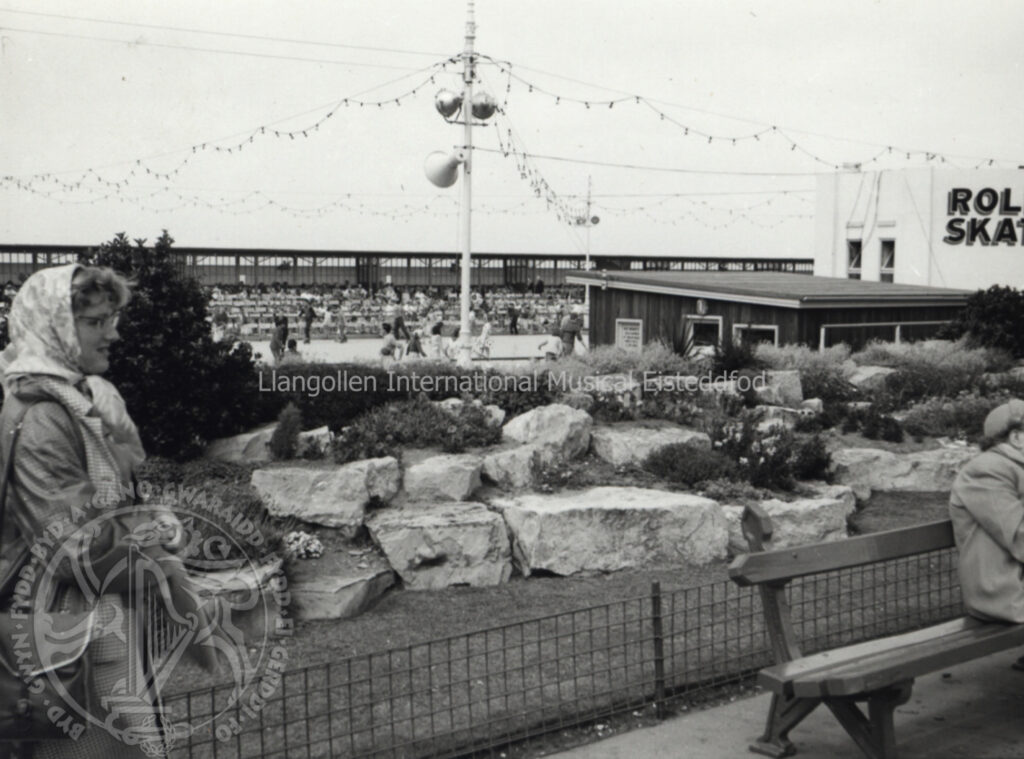
…with a stop on the Horseshoe pass to feed the sheep.
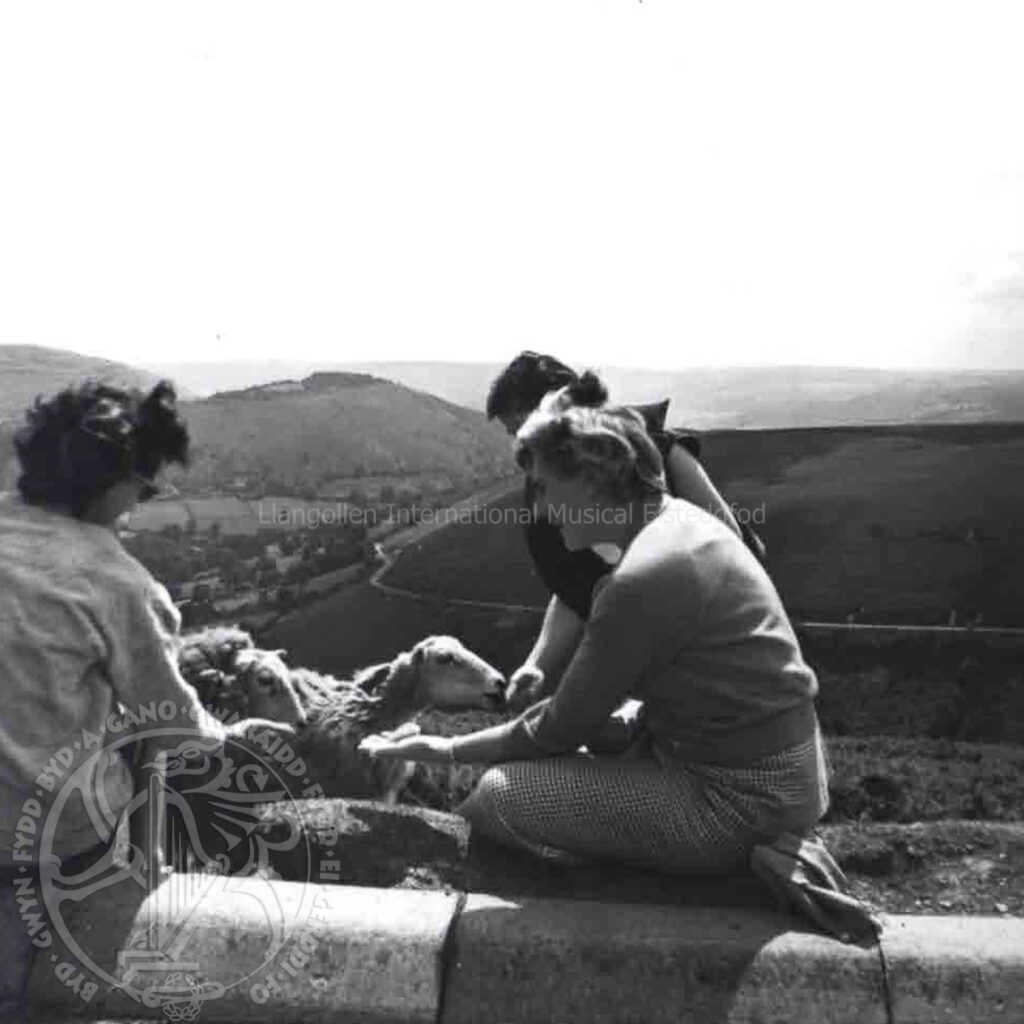
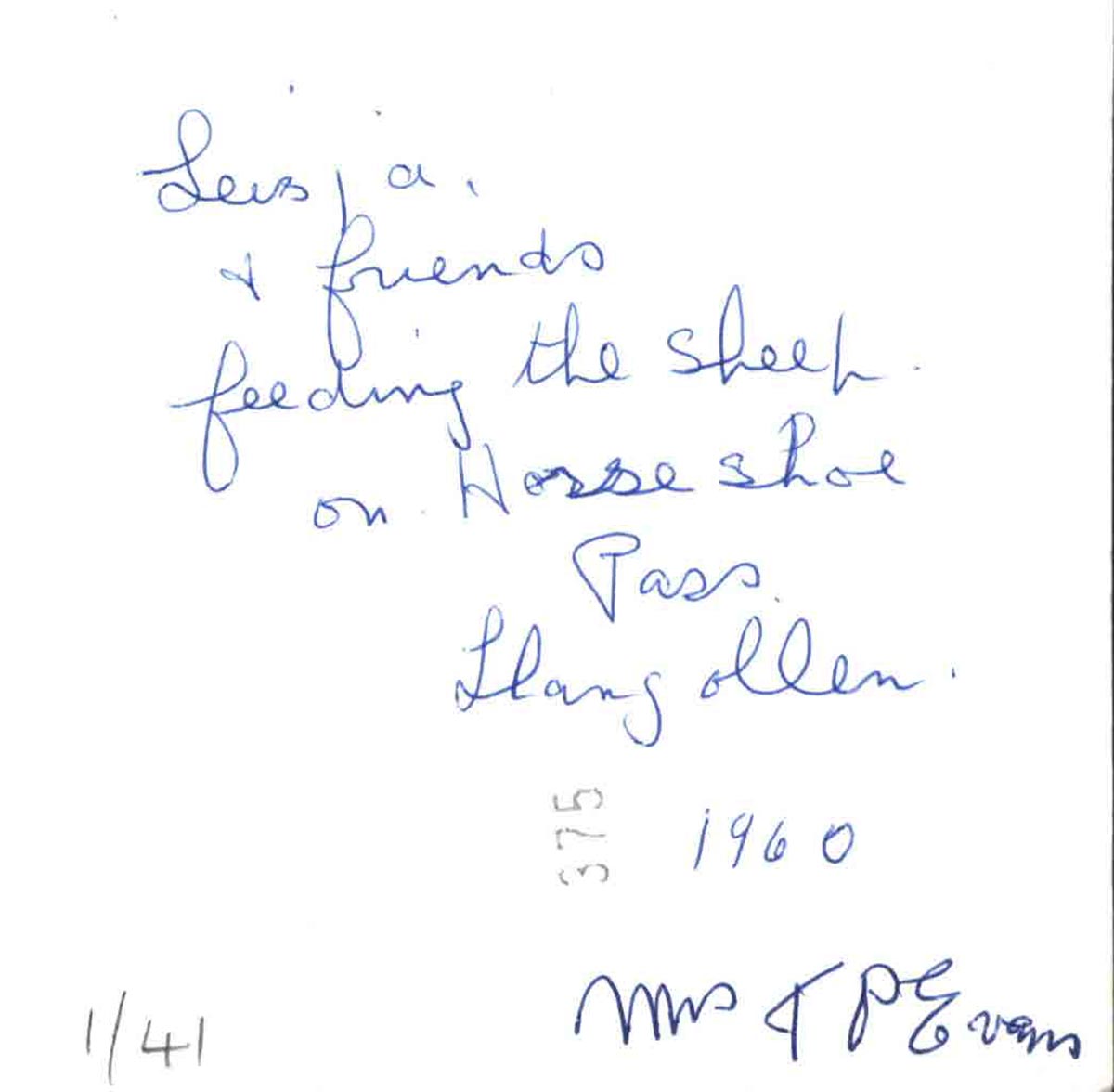
In the modern world, competitors mainly stay in hotels and college hostels. They now pay the full costs; the Eisteddfod started reducing subsidies in the 1990’s to alleviate financial pressures. A few dedicated groups, like the Loughgiel dancers from Northern Ireland, camp out in the Church Hall or Youth Club, but very few now stay in homes. Many factors mitigate against it: child protection regulations; smaller houses; two-income families, with fewer people taking time off in Eisteddfod week; the lack of ensuite facilities clashes with the norms of 21st century life. The changes in hospitality mean that groups stay in Llangollen for shorter periods, reducing the scope for the informal exchanges which contributed so much to the spirit of Llangollen.
Two elements of the early scheme remain, however.
On first arrival, groups are welcomed with refreshments and registered for the Eisteddfod. In the early days the handshakes and hugs were on the railway platform, and hospitality camped out opposite the station entrance (now the Cwrt-y-Gamlas site) with all the makings for a Welsh cup of tea and sandwiches. In 1972 the J Rhys Roberts competitor reception centre opened on the field near the Penddol entrance. Upstairs it has showers and a room with camp beds, for when a group’s journey finishes in the middle of the night. The tables outside are usually full of competitors and are the first glimpse the paying visitor coming in at Penddol gets of the festival itself.
Second, a local host or hostess is assigned to each non-UK group, to shepherd them through their stay, fixing any problems that arose. This was a vital role in the early days, before the use of English was so widespread. Getting so close to the competitors made the job much sought after, particularly by young women, and it’s still a hot ticket.
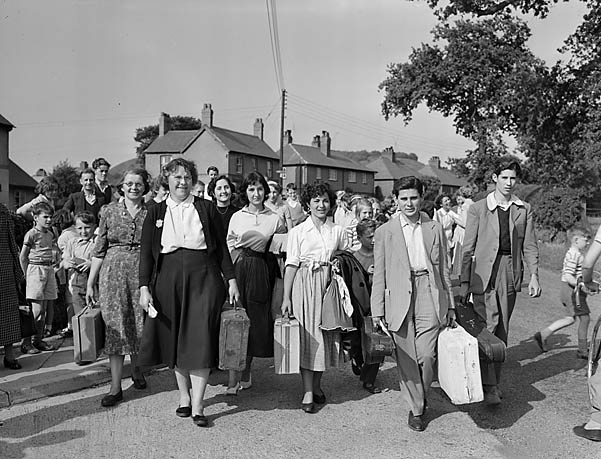
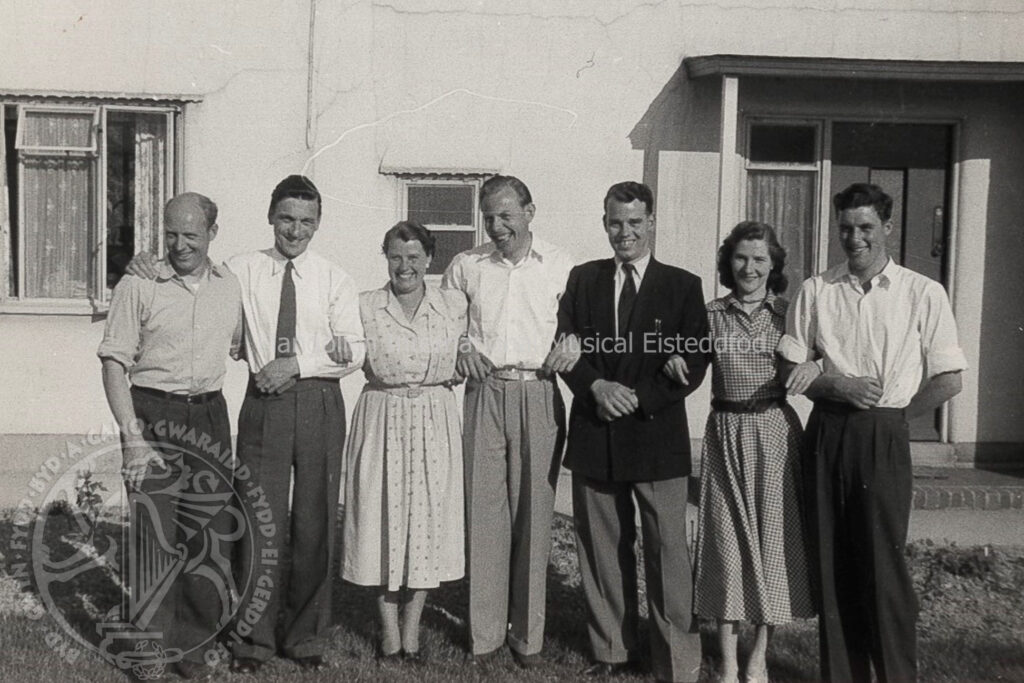
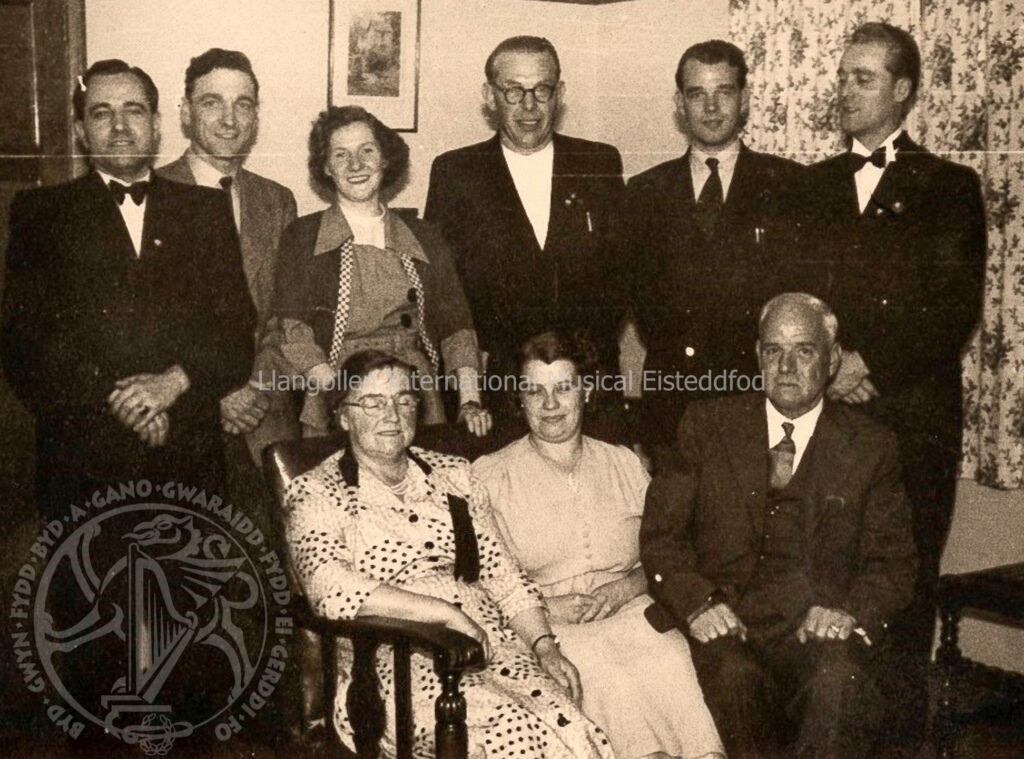
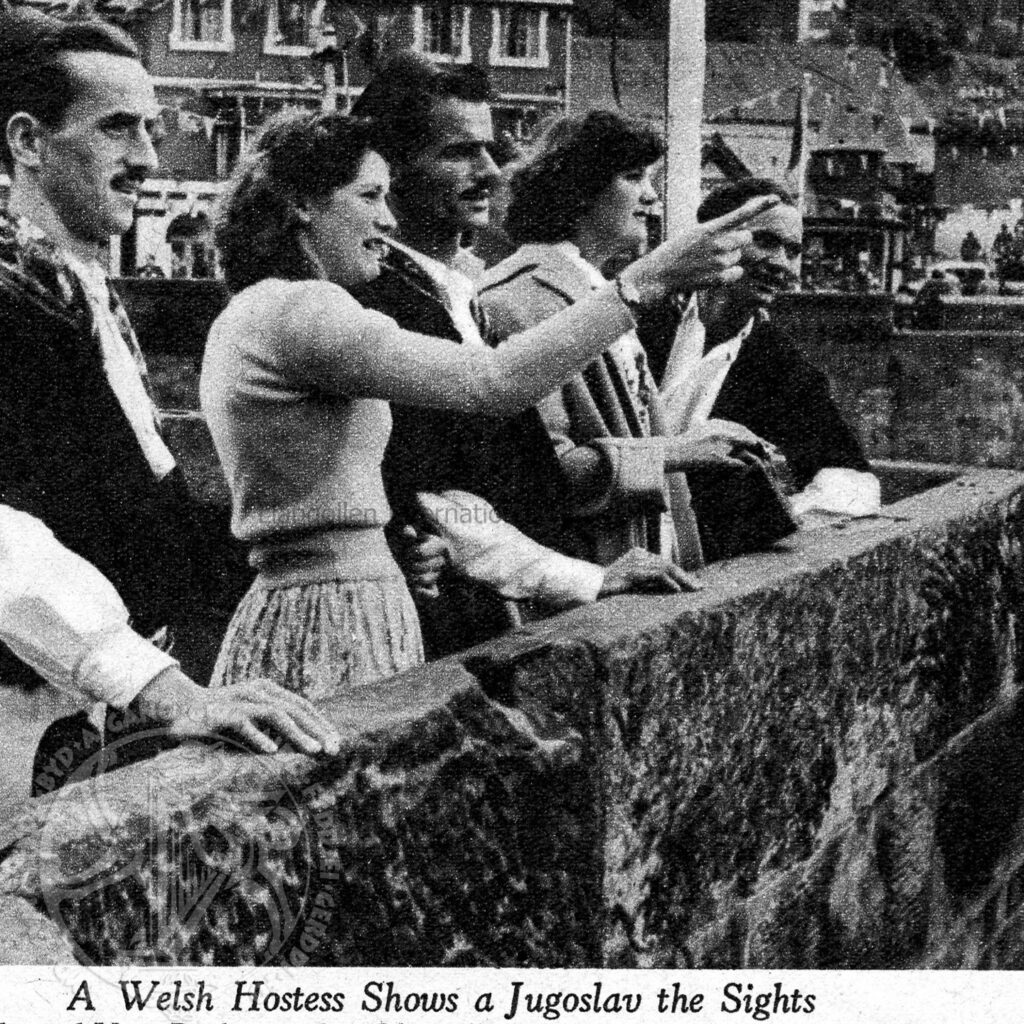
The hospitality policy was a triumph of the early Eisteddfod. The newspapers eagerly picked up on the human interest generated by the interactions between hosts and guests. Its success in promoting the Eisteddfod’s aim of building relationships between ordinary people was remarked on widely by organisations like UNESCO; the Welsh tourist board latched on to it for the slogan “Llangollen – where Wales welcomes the world”.
Find out more:





